Hell on Earth: Image Tour of Death Valley

Pd Moving Rocks
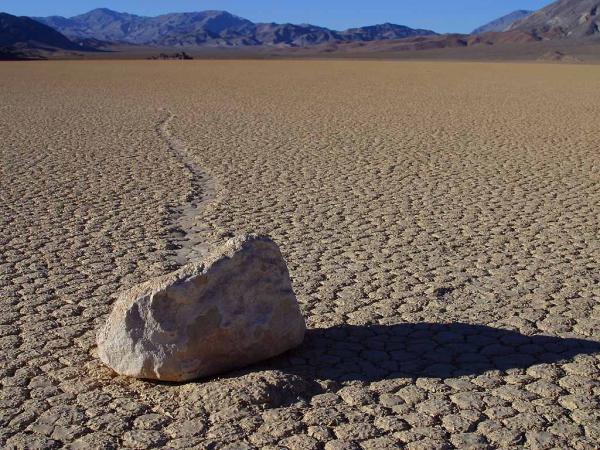
In a small valley located in the northwest part of Death Valley is found one of nature's strangest phenomena the mystery of the traveling rocks ! Here at Racetrack Playa, rocks as heavy as 1 ton mysteriously move across the dry mud playa. No one has ever seen the rocks actually move but the long, meandering marks scraped into the playa surface surely attest to their rambling ways.
Pd Travelled Rock
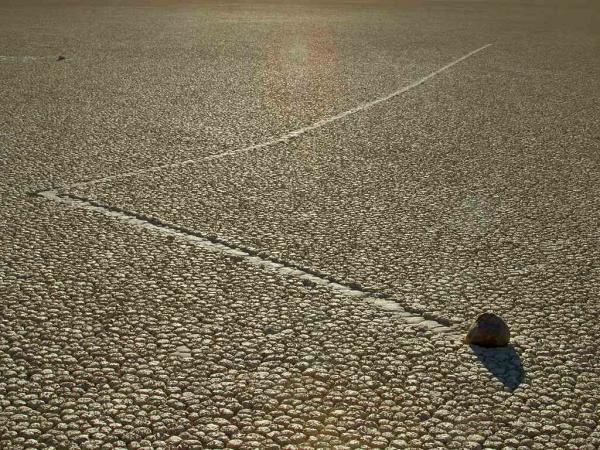
The Racetrack is about 3 miles (5 km) long and 2 miles (3 km) wide. The beige-colored, hexagon-shaped mud is the remains of the ancient lake and is up to 1,000 feet (300 m) thick. Scientists believe that with as little as a 0.5 inch (1.3 centimeters) of rain, the deep mud-filled lakebed remains firm but becomes very slippery. Strong winds of 50 mph (80 kph) or more commonly blow across the Racetrack, causing the large boulders to move across the slick, playa mud.
Nps Jubilee Pass
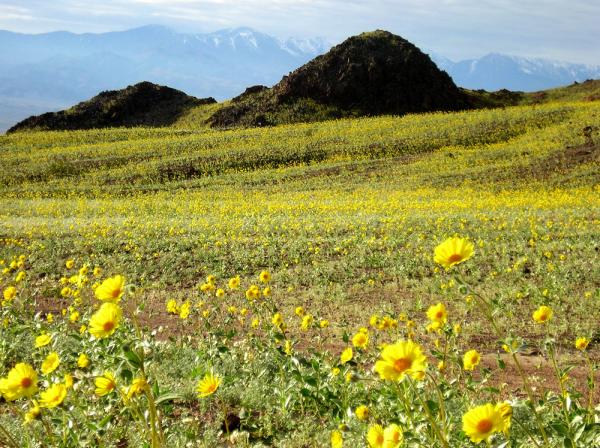
Even with all the extremes of heat and dryness, Death Valley is still teeming with life. Over 1,000 species of plants are found growing here, including fields of springtime wildflowers. More than 50 of those plant species are endemic to Death Valley, found nowhere else in the world.
Pd Lizard
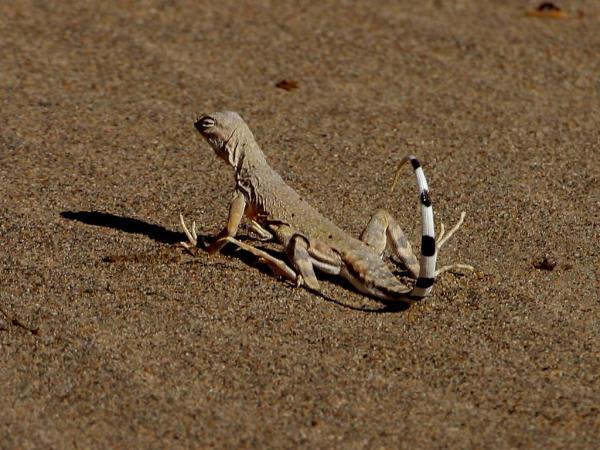
Wildlife also flourishes in the oppressive environment of Death Valley. Zebra-tailed lizards (Callisaurus draconoides) are a common site among the valley's sand dunes. Death Valley is home to 56 species of mammals, 36 species of reptiles, almost 400 species of birds, five species of amphibians and five species and one sub-species of native fishes.
Nps Badwater Storm
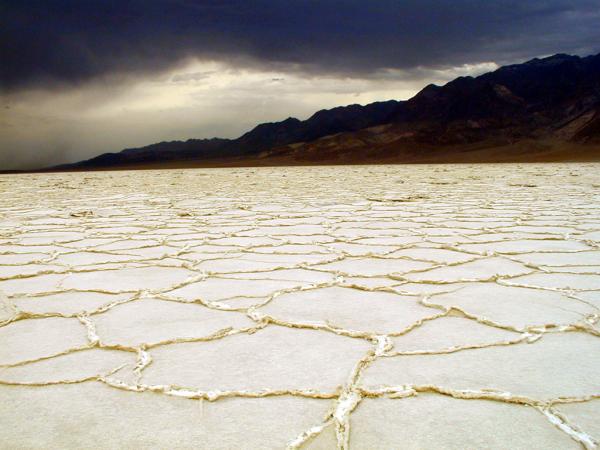
The strangely beautiful saltpan at Badwater Basin becomes the perfect testimonial to the unique and special world found at Death Valley National Park. It is here at Badwater that the lowest point 282 feet (86 m) below sea level in North America is found. Badwater is the most visited and photographed spot in the national park. Ironically, less than 100 miles (160 km) to the northwest of Badwater is found the summit of Mt. Whitney, the highest point in the contiguous United States.
Xanterra Zabriskie Point
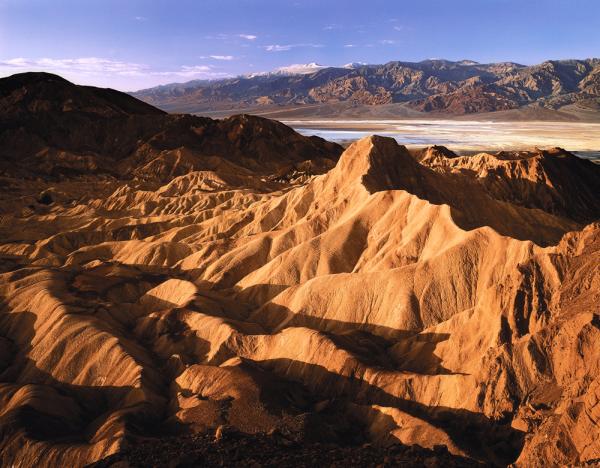
The place names of Death Valley National Park are an audio treasure of descriptive proper names. There is Hells Gate, Furnace Creek, Coffin Peak and the Devils Golf Course. If you can survive Deadman Pass, Starvation Canyon and Funeral Peak, you can visit Rainbow Canyon, Jackpot Canyon or even Surprise Canyon. It is a place of wonderful extremes, that ol' Death Valley, even in the names that we call it.
Get the world’s most fascinating discoveries delivered straight to your inbox.


